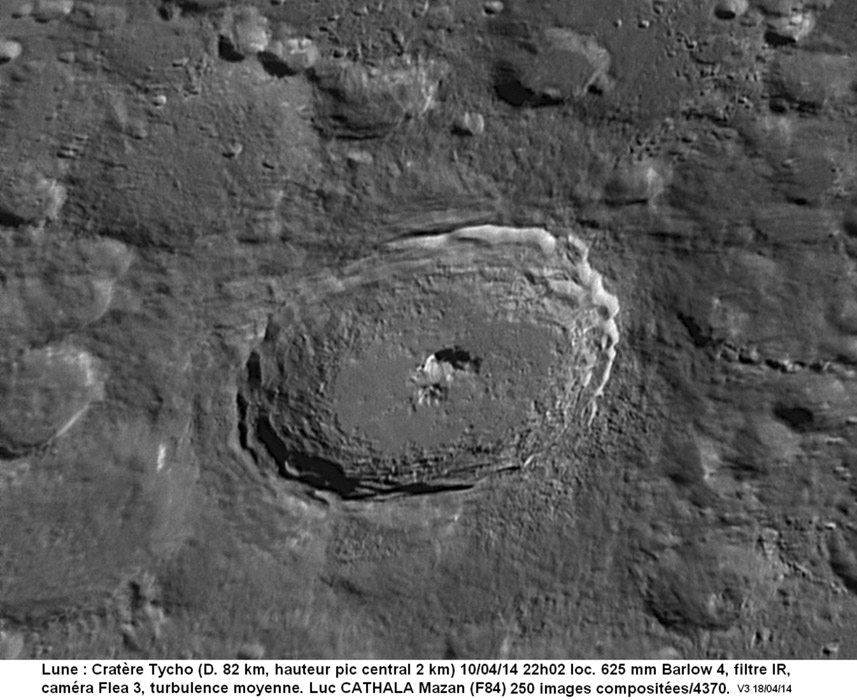Difference between revisions of "April 22, 2014"
| Line 1: | Line 1: | ||
__NOTOC__ | __NOTOC__ | ||
=Modifying the Hole= | =Modifying the Hole= | ||
| + | <!-- Start of content --> | ||
<!-- ws:start:WikiTextHeadingRule:0:<h1> --> | <!-- ws:start:WikiTextHeadingRule:0:<h1> --> | ||
<!-- ws:start:WikiTextLocalImageRule:6:<img src="/file/view/LPOD-Apr22-14.jpg/503692568/LPOD-Apr22-14.jpg" alt="" title="" /> -->[[File:LPOD-Apr22-14.jpg|LPOD-Apr22-14.jpg]]<!-- ws:end:WikiTextLocalImageRule:6 --><br /> | <!-- ws:start:WikiTextLocalImageRule:6:<img src="/file/view/LPOD-Apr22-14.jpg/503692568/LPOD-Apr22-14.jpg" alt="" title="" /> -->[[File:LPOD-Apr22-14.jpg|LPOD-Apr22-14.jpg]]<!-- ws:end:WikiTextLocalImageRule:6 --><br /> | ||
Revision as of 17:08, 8 February 2015
Modifying the Hole

south up image by Luc Cathala, Mazan 84380 FRANCE
What to say about the Metropolitan Crater of the Moon? Impact melt on the floor, terraced walls, and a shear rim crest. The 86 km wide crater was excavated nearly instantly, creating a present-day 4.7 km deep hole, that originally was 20-30 km deep. The creation of this huge void caused the edges of the hole to collapse. The rock, already heavily shocked, was too weak to remain vertical with its lateral support removed, and dropped down in a series of huge semi-coherent steps - the terraces. The seismic shocks due to the terrace collapse caused debris to tumble down, partially filling the floor. Interestingly, the impact melt covers some of that debris, and ponds on some of the terraces - the melt was still mobile after the terraces formed and slump debris was deposited.
Chuck Wood
Related Links
21st Century Atlas chart 15.
Yesterday's LPOD: Agricola Straits
Tomorrow's LPOD: Polar Volcanism?
COMMENTS?
Register, Log in, and join in the comments.



